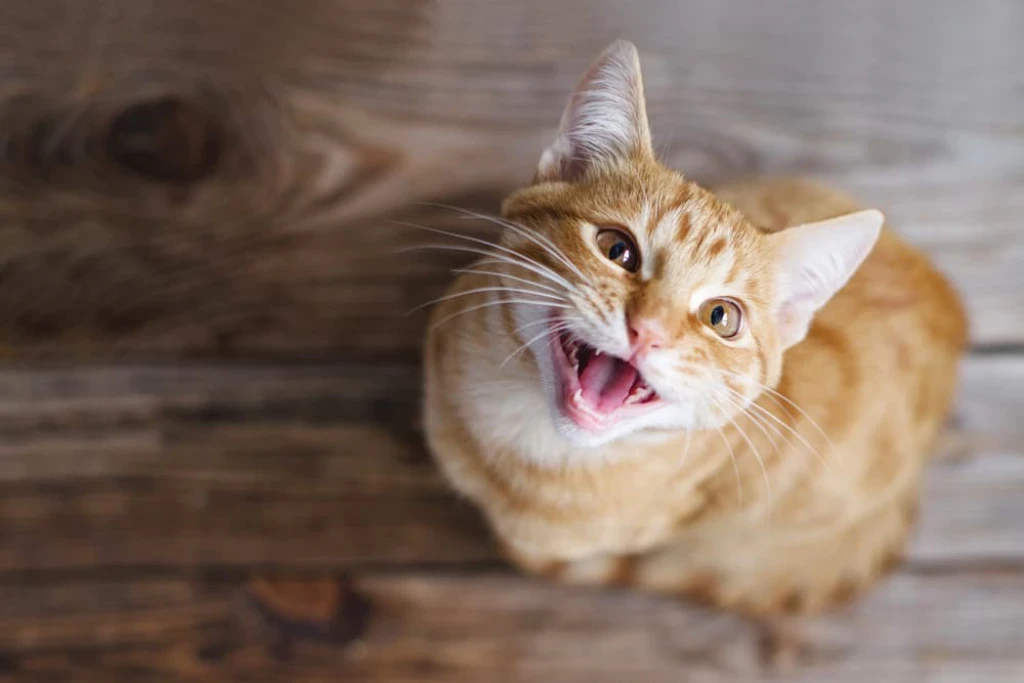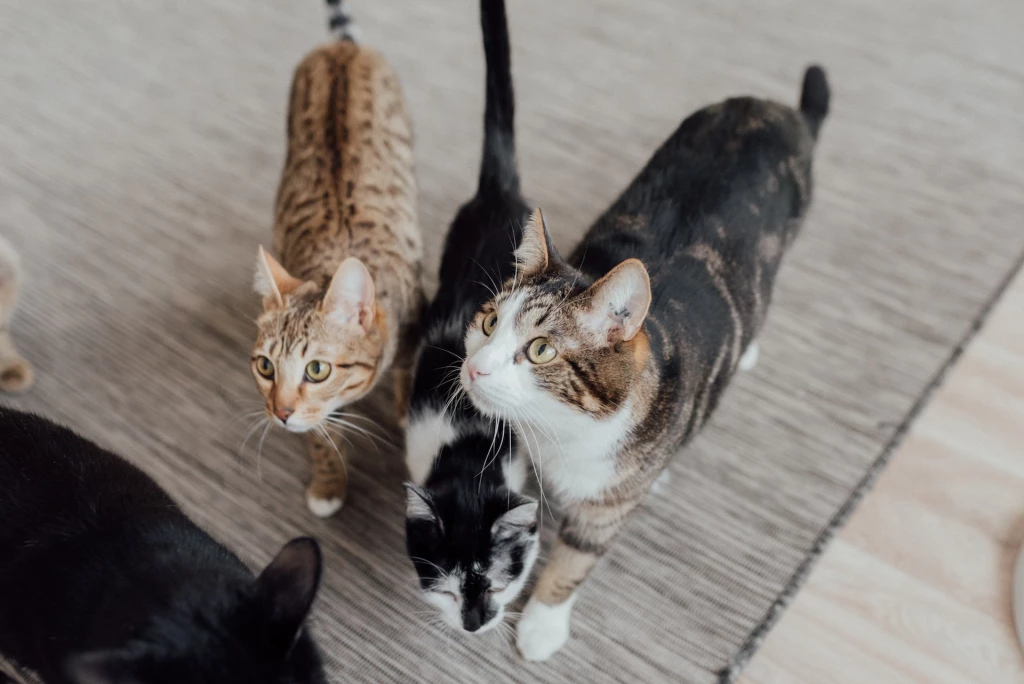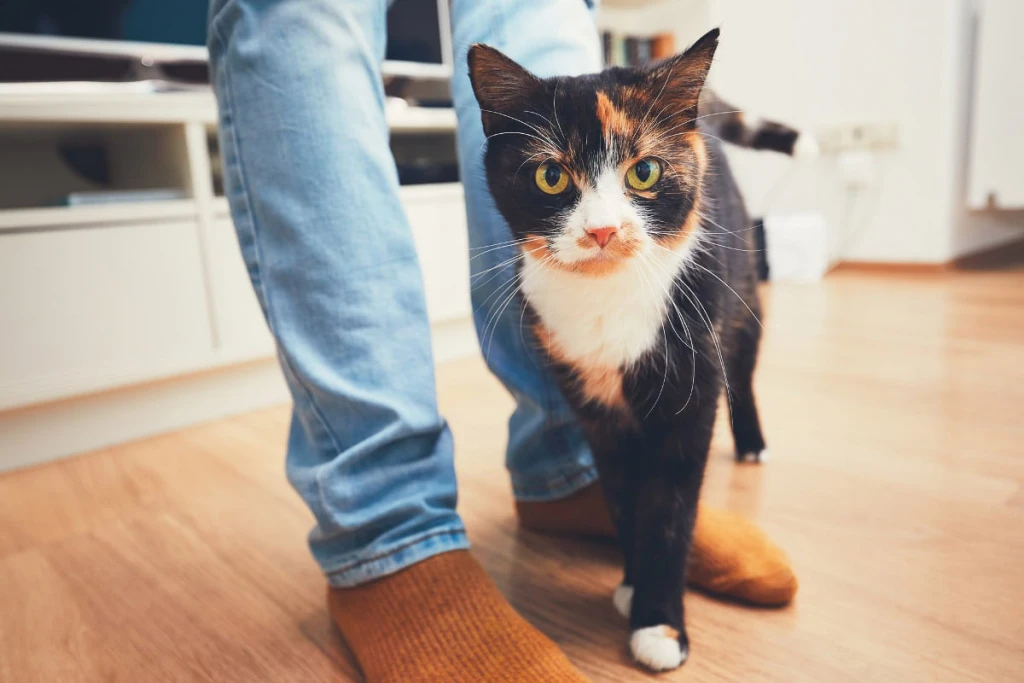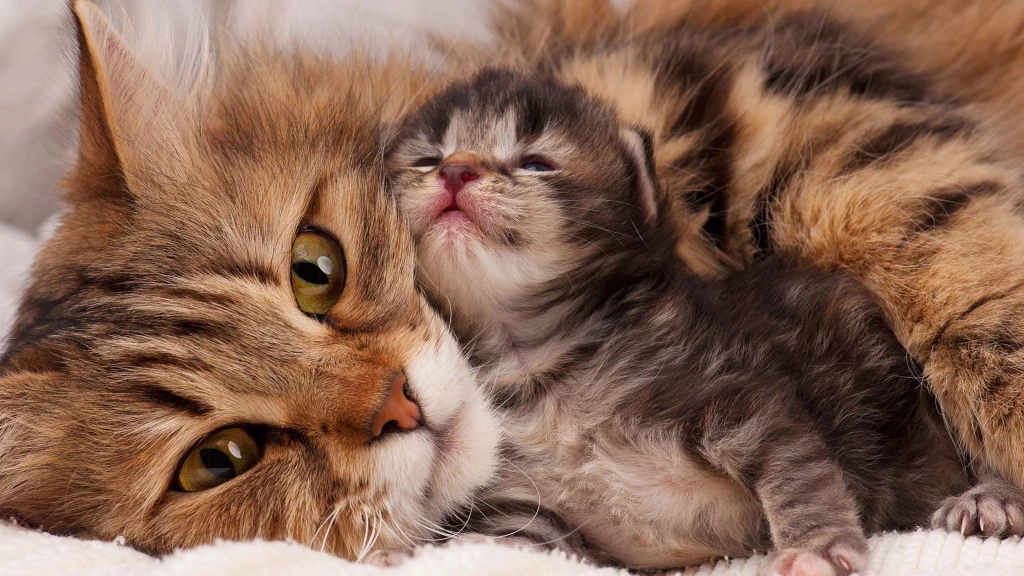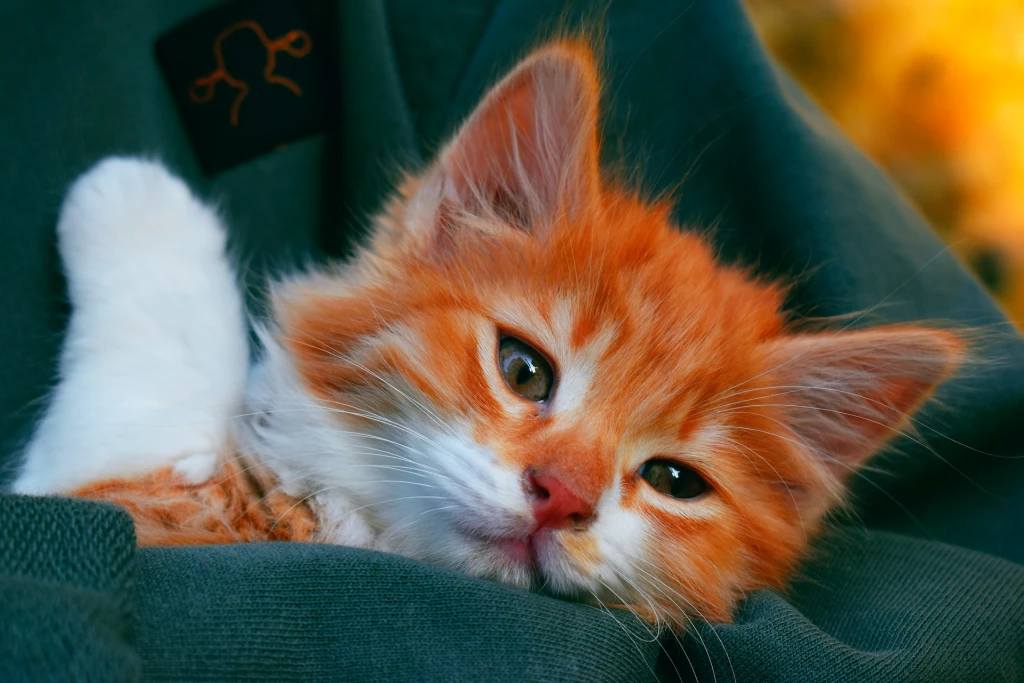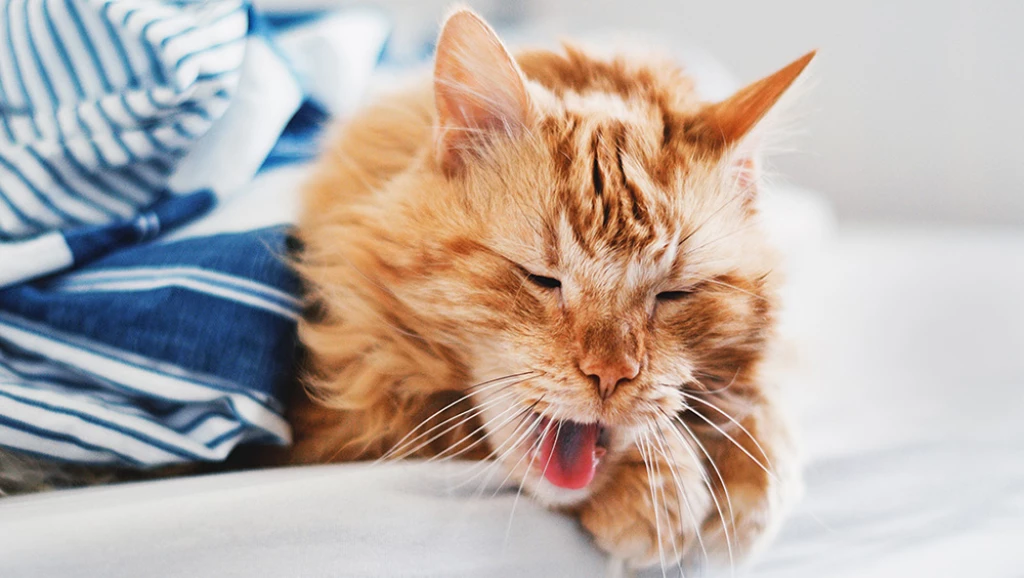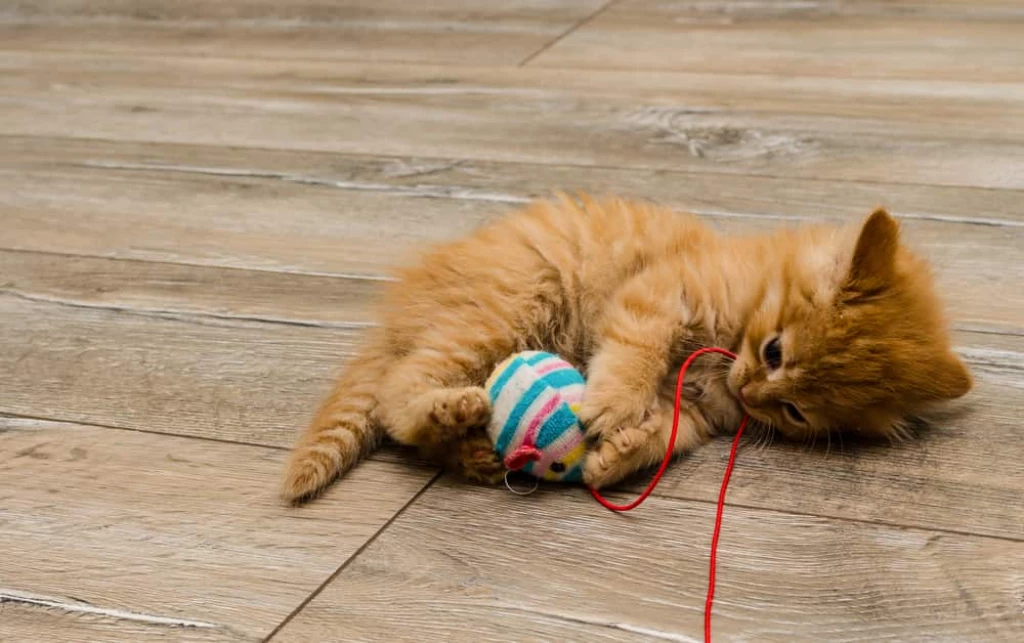If you have a spayed female cat, you might think that you are safe from the loud and annoying yowling that unspayed cats make when they are in heat. However, you might be surprised to find out that your spayed kitty can still yowl for various reasons, some of which might be serious.
In this blog post, we will explore the possible causes of yowling in spayed female cats and what you can do to help your furry friend. Whether your cat is yowling because of hormones, health issues, stress, attention, or territory, we will give you some tips and tricks to understand and solve this problem.
So, keep reading and find out why your spayed female cat is yowling and how to make her happy again.
Hormones Are Balancing
One of the most common reasons why your spayed female cat is yowling is that her hormones are still balancing after the surgery. Spaying is a major procedure that involves removing the ovaries and uterus of your cat. This means that your cat will no longer produce estrogen, the hormone that triggers the heat cycle.
However, it can take up to eight weeks for your cat’s body to adjust to this change and for her hormone levels to stabilize. During this time, your cat may still experience some of the symptoms of being in heat, such as yowling, rubbing, and rolling. This is normal and temporary and does not mean that your cat is still fertile or that the surgery was unsuccessful.
The best thing you can do for your cat during this period is to be patient and supportive. You can try to distract your cat with toys, treats, or cuddles, but avoid punishing or scolding her for yowling. Remember that she is not doing it on purpose and that she will soon calm down once her hormones are balanced.
Ovarian Remnant Syndrome
Another possible reason why your spayed female cat is yowling is that she has ovarian remnant syndrome. This is a rare but serious condition that occurs when some ovarian tissue is left behind during the spaying surgery. This tissue can still produce estrogen and cause your cat to go into heat, even though she has no uterus or ovaries. This can happen at any time after the surgery, sometimes years later.
Ovarian remnant syndrome can cause your cat to yowl incessantly, as well as show other signs of being in heat, such as increased affection, restlessness, and vulvar swelling. It can also put your cat at risk of developing other health problems, such as pyometra (a life-threatening infection of the uterus), mammary tumors, and infertility.
If you suspect that your cat has ovarian remnant syndrome, you should take her to the vet as soon as possible. The vet can confirm the diagnosis by measuring your cat’s estrogen levels or performing an ultrasound. The treatment for ovarian remnant syndrome is another surgery to remove the remaining ovarian tissue. This can be challenging and complicated, depending on where the tissue is located and how much of it there is. However, it is the only way to stop your cat from yowling and suffering from this condition.
Attention Seeking
Sometimes, your spayed female cat is yowling simply because she wants your attention. Cats are social animals and they need stimulation and companionship from their owners. Your cat may yowl to get you to play with her, feed her, pet her, or just acknowledge her presence. She may also yowl to greet you when you come home or to say goodbye when you leave.
Your cat may be more likely to yowl for attention if she is bored, lonely, or has separation anxiety. You may notice that she yowls more when you are busy, away, or asleep. The best way to prevent or reduce attention-seeking yowling is to give your cat enough attention and enrichment throughout the day.
You can do this by following a regular feeding schedule, providing interactive toys and scratching posts, playing with your cat for at least 15 minutes a day, and giving her lots of cuddles and praise. You can also try to ignore your cat when she yowls for attention and reward her when she is quiet. This way, you can teach her that yowling is not an effective way to get what she wants.
Stress & Anxiety
Another common reason why your spayed female cat is yowling is that she is stressed or anxious. Cats can get stressed or anxious by various factors, such as changes in their environment, loud noises, unfamiliar people or animals, or even natural disasters. Stress and anxiety can make your cat feel scared, nervous, or insecure, and yowling can be a way to express those feelings.
Your cat may also yowl to seek comfort or reassurance from you or to warn off potential threats. Some signs of stress or anxiety in cats include hiding, aggression, overgrooming, litter box problems, and loss of appetite. The best way to help your cat cope with stress or anxiety is to provide a safe and comfortable space for her. You can do this by giving her a cozy bed, a hiding spot, a scratching post, and some familiar toys and scents. You can also try to limit the sources of stress or anxiety as much as possible.
For example, if your cat is stressed by loud noises, you can move her to a quieter room or play some soothing music. If your cat is stressed by other pets or people, you can separate her from them or introduce them gradually and positively. You can also use some calming products, such as pheromone sprays, diffusers, or collars, to help your cat relax. However, if your cat’s stress or anxiety is severe or chronic, you may need to consult a vet or a behaviorist for professional advice and treatment.
Pain & Discomfort
One of the most serious reasons why your spayed female cat is yowling is that she is in pain or discomfort. Cats can suffer from various health issues that can cause them pain or discomfort, such as urinary tract infections, arthritis, dental problems, kidney disease, or cancer. Pain and discomfort can make your cat feel miserable and unhappy, and yowling can be a way to communicate that to you or to seek relief.
Some signs of pain or discomfort in cats include limping, licking, drooling, panting, trembling, or changes in behavior or appetite. The best way to help your cat with pain or discomfort is to take her to the vet as soon as possible. The vet can diagnose the cause of your cat’s pain or discomfort and prescribe the appropriate treatment. Depending on the severity and type of the problem, the treatment may include medication, surgery, diet change, or supportive care.
You can also try to make your cat more comfortable at home by providing a soft bed, a warm blanket, a water fountain, and some gentle massage. However, you should never give your cat any human painkillers or home remedies without consulting your vet first, as they can be harmful or even fatal for your cat.
Territorial Behavior
The last reason why your spayed female cat is yowling is that she is displaying territorial behavior. Cats are very territorial animals and they like to mark their territory and defend it from intruders. Your cat may yowl to claim her territory or to warn off other cats, dogs, wildlife, or even humans that she perceives as threats. She may also yowl to announce her presence or to locate other cats in the area.
Your cat may be more likely to yowl for territorial reasons if she is an outdoor cat or if she has access to windows or doors where she can see or smell other animals. The best way to prevent or reduce territorial yowling is to spay or neuter your cat (if not already done), as this can reduce their urge to mate and fight. You can also try to keep your indoor cat indoors, as this can reduce their exposure to potential rivals and dangers.
However, if you do let your cat outside, make sure she is microchipped, vaccinated, and has a collar with your contact information. You can also provide enough resources for your cat inside the house, such as food, water, litter boxes, toys, and scratching posts, so that she does not feel the need to compete or share with other cats. You can also use some deterrents, such as motion-activated sprinklers, ultrasonic devices, or citrus peels, to keep other animals away from your property.
Conclusion
In this blog post, we have explored the possible causes and solutions for yowling in spayed female cats. We have learned that yowling can be a sign of hormones balancing, ovarian remnant syndrome, attention seeking, stress, anxiety, pain, discomfort, or territorial behavior.
We have also learned some tips and tricks to understand and solve this problem and to make our cats happy and healthy. Yowling can be a frustrating and worrying behavior for cat owners, but it can also be a way for our cats to communicate with us and express their needs and feelings.
By paying attention to our cats’ yowling and the context in which it occurs, we can better understand what they are trying to tell us and how we can help them. We hope you have enjoyed this blog post and found it informative and helpful.
